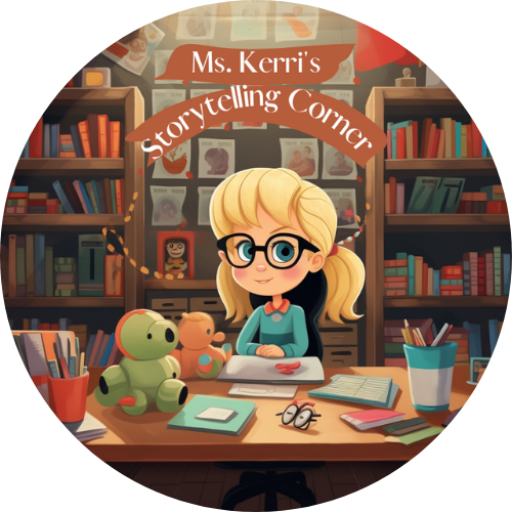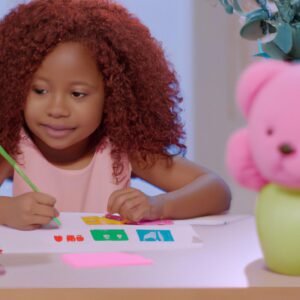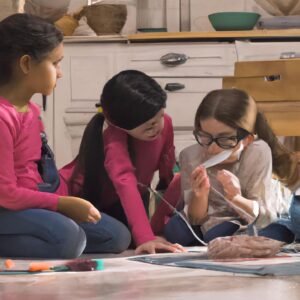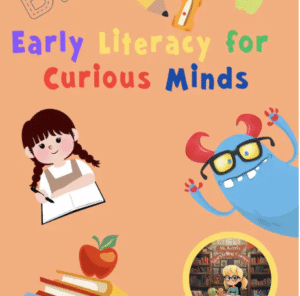What Activities Improve Child Development?
When it comes to nurturing a child’s development, engaging in a variety of activities can make a world of difference. From running and climbing to lifting and throwing, there are numerous physical growth activities that not only promote physical fitness but also contribute to the overall development of a child. These activities encompass a wide range of movements, including pushing, pulling, balancing, and practicing fine motor skills.
Key Takeaways
- Arts and crafts activities stimulate creativity and fine motor skills.
- Outdoor play promotes physical health and social skills.
- Involvement in cooking activities fosters independence and basic life skills.
- Science experiments encourage curiosity and critical thinking.
- Role-playing games enhance imagination and social interaction.
Let’s Get Creative!
Arts and Crafts Galore
Unleash the imagination! Arts and crafts aren’t just about getting glue on your fingers and finding glitter in your hair for weeks. They’re a whirlwind of color and creativity that can boost learning and motor skills in ways that are as fun as they are educational.
- Scissor Skills: Snip, cut, and shape. Developing fine motor skills has never looked so chic.
- Color Theory: Mix, match, and marvel. Watch as your little Picasso blends colors and learns about their relationships.
- 3D Masterpieces: Fold, build, and balance. From paper airplanes to cardboard castles, spatial awareness takes flight.
Encourage your mini Monets and tiny O’Keeffes to express themselves through a kaleidoscope of mediums. It’s a mess worth making!

Remember, every scribble on the wall is a step towards a masterpiece in the making. So, let them paint the town red, blue, and every shade in between. After all, a splash of paint can become the canvas for a lifetime of skills.
Music Madness
Unleash the symphony of learning with a dash of melodic mayhem! Music is not just a feast for the ears; it’s a full-blown gym for the brain. Tots to tweens can benefit from the rhythm and rhyme of musical exploration. It’s about more than just tapping toes; it’s about nurturing neurons and crafting cognitive connections.
- Sing-along sagas: Belt out nursery rhymes and chart-toppers with equal gusto.
- Instrumental intrigue: From shaking maracas to strumming guitars, hands-on is the way to go.
- Composer’s corner: Encourage mini Mozarts to create their own tunes, no matter how quirky!
Embrace the cacophony of creativity and watch as your little ones harmonize their way to developmental milestones.
Dive into the crescendo of childhood development where every beat counts. Let’s turn up the volume on learning and let the power of music work its developmental magic!
Dance Party Extravaganza
Twirl, leap, and groove your way to enhanced coordination and social skills with a family dance-off! It’s not just about busting moves; it’s about building brains. Dance integrates kinesthetic learning with emotional expression, paving the way for a well-rounded development.
- Encourages physical fitness
- Boosts memory and pattern recognition
- Fosters creativity and self-expression
Remember, the best dancer is the one having the most fun!
While the little ones are getting jiggy with it, they’re also honing their motor skills and rhythm. It’s a full-body brain boost that feels more like play than practice. And let’s not forget, those cursive twirls and dips might just be prepping their hands for beautiful cursive writing down the line.
Playtime Palooza
Outdoor Adventures
Step outside and let the wild rumpus start! Outdoor play isn’t just a way to burn off steam; it’s a jungle gym for the brain. From the tiniest tots to the most adventurous pre-teens, nature’s playground is ripe with opportunities for learning and growth.
Exploration is the name of the game, and the rules are simple: there are no rules! Encourage your little explorers to get their hands dirty, because every rock turned and every leaf examined is a lesson waiting to happen. Here’s a sneak peek at the fun:
- Bug safaris: magnifying glasses and mason jars at the ready!
- Plant detectives: what’s sprouting up and why?
- Cloud storytelling: fluffy tales taking shape in the sky.
Remember, the great outdoors is the ultimate sensory experience. Textures, sounds, and smells abound, creating a full-bodied learning extravaganza.
Whether it’s a structured scavenger hunt or free play among the trees, outdoor activities are a treasure trove of developmental delights. So, lace up those sneakers and prepare for an adventure that’s as educational as it is exhilarating!
Imaginary Worlds
Dive into the whimsical realms of make-believe, where dragons soar and castles float in the sky. Let their imaginations run wild as they conjure up fantastical stories and characters. It’s not just fun and games; these flights of fancy are crucial for cognitive and social development.
- Encourage children to invent new games or scenarios with their favorite toys.
- Create Art Together. Artistic activities are vital for expressing and nurturing creativity.
- Build a fort out of blankets and pillows, transforming the living room into a fortress or fairy-tale palace.
Embrace the chaos! A messy room often means a busy, engaged brain.
Remember, the power of pretend is more than mere child’s play; it’s a rehearsal for real life. By navigating these imaginary worlds, kids learn to solve problems, empathize with others, and think outside the toy box.
Puzzle Mania
Twist, turn, and align – welcome to the brain-building gymnasium where little neurons flex their muscles! Puzzles are more than just pieces waiting to be matched; they’re a silent symphony of cognitive development, playing out on your living room floor. From the simple satisfaction of fitting the last piece of a jigsaw puzzle to the triumphant ‘Aha!’ of solving a brain teaser, puzzles offer a plethora of benefits that are anything but puzzling.
- Problem-solving prowess: Watch as your child navigates the maze of shapes and colors, honing their ability to strategize and solve.
- Patience and perseverance: Puzzles teach kids that sometimes, you need to take a step back, take a deep breath, and try again.
- Fine motor skills: Those tiny pieces aren’t going to place themselves! Picking up, pinching, and placing each piece helps develop dexterity.
Introduce the captivating world of puzzles as an engaging alternative to screen time.
So, next time rain clouds loom or screens beckon, pull out a puzzle and watch your child dive into a world of concentration and joy. It’s a simple switch that can turn potential boredom into a developmental dance party for the mind!

Kitchen Capers
Baking Bonanza
Whisk in hand, apron tied, and a sprinkle of chaos – welcome to the kitchen! Baking with kids is not just about the sweet treats; it’s a concoction of learning, laughter, and a dash of mess. Measure, mix, and marvel as your little chefs explore the alchemy of ingredients transforming into delicious creations.
- Follow the recipe or go rogue with your own inventions.
- Safety first! Keep those tiny fingers away from hot surfaces.
- Patience is key as dough rises and cookies bake.
Baking is a full sensory experience, engaging sight, smell, taste, touch, and even hearing as the mixer whirls and the timer dings.
Remember, the kitchen is a playground for the imagination. Encourage your mini bakers to get their hands doughy, and don’t fret over a little flour on the floor. After all, it’s not just cupcakes and cookies on the menu, it’s a generous serving of skills – from math and science to creativity and fine motor development. Just be sure to peek at those Terms and Conditions, like Ms. Kerri’s Story Telling Corner, acceptance upon access to this delicious adventure is a must!
Cooking Quests
Whisk in hand, apron tied, and a sprinkle of laughter—welcome to the kitchen, the ultimate arena for culinary quests! Here, little chefs don their hats and embark on a flavorful journey of discovery. Mixing, measuring, and mastery—it’s not just about following a recipe; it’s about creating magic on a plate.
Ingredients become characters in a story where children learn the art of patience and precision. They’ll understand that a pinch of salt or a dash of spice can transform a dish from bland to grand. Cooking is a delicious dance of science and creativity, a perfect recipe for growth.
- Experiment with simple recipes
- Explore cultural cuisines
- Encourage taste tests
Cooking with kids isn’t just about the food. It’s about the giggles between the spills, the high-fives for every successful flip, and the pride in their eyes when they serve their culinary creations.
Remember, every slice and dice is a chance to improve fine motor skills, and every stir and blend is a lesson in cause and effect. So, don your chef’s hat and let the cooking quests commence!
Foodie Fun
Whip out the aprons and chef hats, because it’s time to turn the kitchen into a playground of flavors! Engage your little sous-chefs in a culinary adventure that’s not just about licking the spoon (though that’s a perk!). From sneaking vegetables into a rainbow pizza to sculpting silly fruit creatures, every chop, stir, and roll is a step towards mastering the art of cooking and the science of nutrition.
Encouraging kids to play with their food isn’t just for giggles—it’s a hands-on way to teach them about healthy eating habits and the joy of creating something from scratch.
Let’s not forget the power of storytelling in the kitchen. As you whisk and season, spin tales of where each ingredient comes from, transforming meal prep into an edible episode of ‘Once Upon a Thyme’.
- Funny Faces: Turn sandwiches into smiley canvases.
- Vegetable Sneak: Craft a veggie-loaded pasta dish.
- Food Stories: Narrate the epic journey of a tomato from garden to plate.
Remember, the goal is to make food fun and approachable, fostering a lifelong love for cooking and a curiosity for different cuisines. So, don your imaginary chef’s hat and let the taste-bud-tickling tales begin!
Science Shenanigans

Messy Experiments
Unleash the lab coats and goggles, it’s time to dive into the gloriously gooey world of messy experiments! These hands-on activities are not just a blast, they’re a sneaky way to teach the fundamentals of science. Watch in awe as your kitchen transforms into a bubbling laboratory—just be prepared for the clean-up operation!
- Vinegar volcanoes erupting with fizzy lava
- Homemade slime that stretches the imagination
- Oobleck pools that defy the laws of liquids and solids
Embrace the chaos! Each splat and splatter is a learning opportunity in disguise.
Remember, the messier the experiment, the more memorable the lesson. It’s a sensory smorgasbord that tickles the neurons and ignites a lifelong passion for discovery. So, roll up those sleeves and let the science shenanigans begin!
Nature Explorations
Unleash the inner explorer in every child with a dive into Nature Explorations! It’s a wild world out there, and what better way to learn about it than getting those little hands dirty? Encourage curiosity and respect for the environment as kids discover the wonders of the natural world.
- Investigate local flora and fauna
- Create a nature journal
- Observe weather patterns and learn about the climate
Embrace the mess! Mud pies and leaf prints are not just fun, they’re a tactile way to connect with Mother Nature.
By engaging with the great outdoors, children not only develop a sense of adventure but also a deep appreciation for our planet. They’ll learn about ecosystems, the importance of biodiversity, and why every creepy crawly has its place in the world. And let’s not forget, stories from indigenous authors like Carole Lindstrom and Maria Isabel Sanchez Vegara can open their eyes to a world of cultural heritage, environmental activism, and indigenous leadership, inspiring them to become guardians of the Earth.

Tech Time
In the digital playground, Tech Time transforms screen time into a festival of learning and discovery. Gadgets and gizmos become tools of the trade as kids navigate the basics of coding, robotics, and even app creation. It’s not just about swiping and tapping; it’s about building the future with their own little fingers!
- Start with simple coding apps to introduce the concept of algorithms.
- Progress to robotics kits that bring code to life.
- Challenge them with app development projects for real-world problem-solving.
Embrace the chaos of trial and error. The ‘oops’ moments are where the real magic happens, leading to those triumphant ‘aha!’ breakthroughs.
Remember, the goal isn’t to churn out child prodigies but to spark a passion for technology that could light up their world. And who knows? Maybe they’ll create the next big thing that we didn’t even know we needed. After all, today’s playful project could be tomorrow’s technological triumph!
Adventure Awaits!
Treasure Hunts
Ahoy there, mateys! Ready to embark on a treasure hunt? This isn’t just a romp around the backyard – it’s a developmental goldmine! Navigating the perilous patio and the treacherous treehouse sharpens problem-solving skills and ignites the imagination.
- Draw a map with ‘X’ marks the spot
- Hide clues in cryptic couplets
- Dress up as pirates for full immersion
Encouraging kids to lead the way fosters independence and confidence – watch as they take the helm of their own ship in search of hidden loot!
Remember, the real treasure isn’t the chocolate coins (though they are a tasty bonus); it’s the journey of discovery and the skills they unearth along the way. So, set sail for adventure and watch your little explorers grow!
Obstacle Courses
Ready, set, go! It’s time to turn your living room into an obstacle course extraordinaire. Watch your little ones leap over cushions, crawl under tables, and zigzag around toys. Obstacle courses are not just a blast; they’re a full-body workout for those tiny muscles and a masterclass in problem-solving.
- Start with a simple layout.
- Gradually add complexity with tunnels and hoops.
- Time each run for added excitement!
Obstacle courses are the perfect blend of physical exertion and mental gymnastics. They encourage kids to think on their feet—quite literally!
Remember, the goal isn’t to create the next Olympic athlete, but to foster a sense of achievement and resilience. So cheer them on, make a fuss over their successes, and watch as they tackle each challenge with gusto. After all, every toppled tower or missed step is just another opportunity to learn and laugh!

Role-Playing Rampage
Unleash the imagination! Role-playing isn’t just a hoot and a half; it’s a developmental dynamo. Kids morph into knights, astronauts, or whatever tickles their fancy, learning empathy and problem-solving faster than a superhero dons a cape. Boldly go where no playtime has gone before!
- Craft your own costumes
- Invent thrilling backstories
- Navigate through epic quests
Embrace the chaos! Every pillow fort or cardboard castle is a bastion of creativity. Let them lead the narrative, and you’ll be amazed at the ingenuity that unfolds.
Remember, there’s no script in the theater of the young. The plot twists? Unpredictable. The character development? Off the charts. So, grab some props and dive into the fantastical world of role-play. It’s not just fun and games; it’s a rehearsal for life’s grand stage.
Frequently Asked Questions
What are the benefits of arts and crafts for child development?
Arts and crafts activities can enhance creativity, fine motor skills, and cognitive development in children.
How does music contribute to child development?
Music can improve language skills, emotional development, and cognitive abilities in children.
Why is dance important for child development?
Dance helps in developing coordination, physical fitness, and self-expression in children.
What are the benefits of outdoor play for child development?
Outdoor play promotes physical health, social skills, and cognitive development in children.
How does imaginative play support child development?
Imaginative play fosters creativity, problem-solving skills, and emotional development in children.
Why are puzzles beneficial for child development?
Puzzles enhance cognitive skills, critical thinking, and patience in children.


Ms. Kerri’s Corner provides a exciting virtual space for preschool learning. Through a variety of engaging activities, she exposes young minds to early math, literacy, science and social-emotional skills in a developmentally appropriate way. Centers for blocks, art, books and music allow children to explore hands-on learning at their own pace. Guided lessons subtly introduce number sense, letter sounds and narrative thinking. Careful observation gives insight into each child’s progress across domains. Viewers are also invited to participate, reinforcing that their ideas are valued. By making learning fun yet purposeful, Ms. Kerri lays the groundwork for future academic success while fostering creativity and imagination. Her program offers preschoolers valuable screen-based learning experiences.




